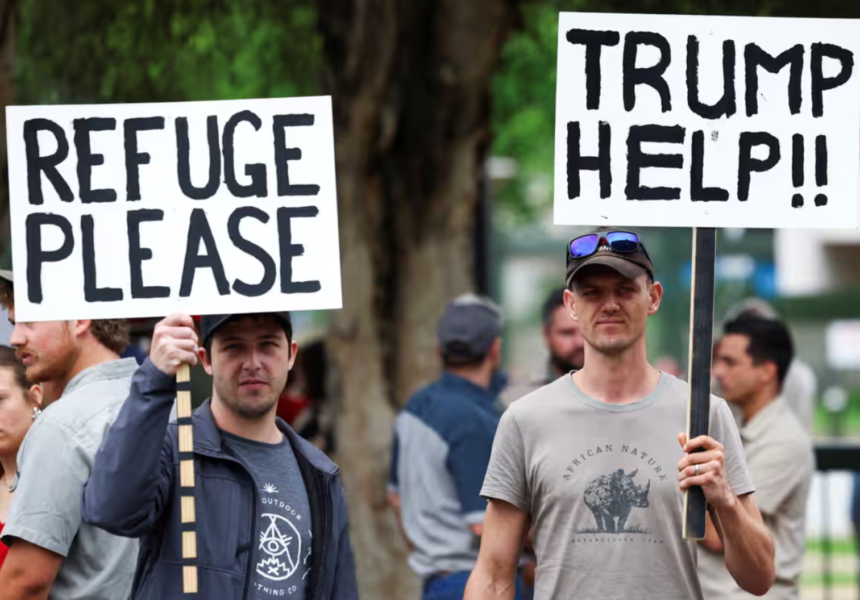Washington/Pretoria – The Trump administration has sparked an international controversy by offering refugee protection to white South African farmers, claiming they face systematic persecution. The move has drawn sharp criticism from South African officials and raised questions about America’s immigration priorities.
President Trump signed an executive order in February classifying South Africa’s Afrikaner minority as victims of racial discrimination, making them eligible for U.S. refugee status with a pathway to citizenship. The first group of 54 applicants has already been approved for resettlement.
This decision comes as the administration has dramatically restricted asylum claims from other African nations experiencing documented humanitarian crises, including war zones and famine-affected regions.
The South African government has strongly rejected the characterisation of white farmers as persecuted. Official crime statistics show no evidence of racially motivated attacks against farmers, with rural violence affecting all communities equally.
“This policy appears designed to interfere with our domestic affairs and constitutional processes,” said South Africa’s Foreign Minister Naledi Pandor. “It selectively privileges one group while ignoring verifiable refugee crises across our continent.”
The refugee initiative stems from claims by advocacy groups like AfriForum, which alleges white farmers face genocide. These assertions have been amplified by prominent figures including Elon Musk, who spent his childhood in apartheid-era South Africa.
However, independent studies show white South Africans remain disproportionately wealthy, controlling approximately 72% of agricultural land despite constituting just 7% of the population. Land reform programs aim to address these historic inequalities.
The policy threatens to damage bilateral relations, potentially affecting $3.7 billion in annual trade between the two nations. Analysts warn it could also embolden far-right movements globally by appearing to validate claims of “white genocide” – a conspiracy theory rejected by mainstream scholars.
As the first refugee families prepare to relocate, the controversy highlights growing tensions between America’s immigration policies and international human rights norms. The long-term diplomatic consequences remain uncertain, but the dispute has already become another flashpoint in increasingly strained U.S.-Africa relations.
Reporting by Tendai Nheta /Elevation News], with contributions from diplomatic sources in Washington and Pretoria.










